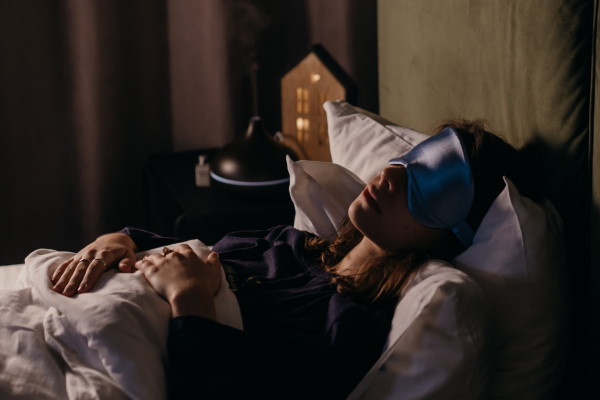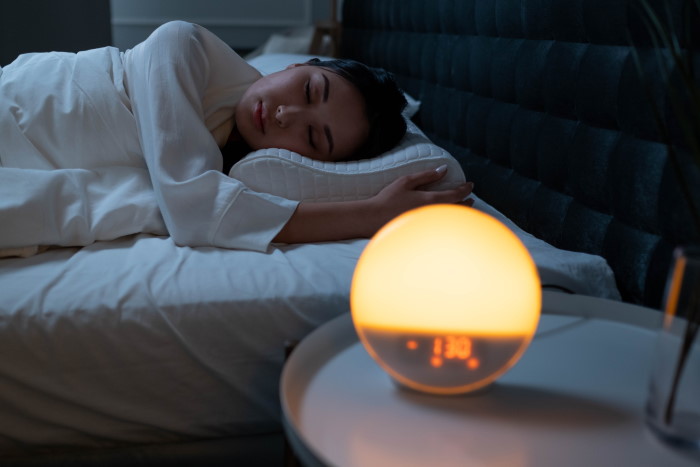A 2011 article published in the New York Times examined the theory that sleeping on your side can reduce snoring. Like most medical questions, trying to prove this theory is more complicated than it seems. The same article revealed that a study showed that 54% of individuals were positional snorers or those who snored when they sleep on their backs. Meanwhile, that leaves 46% of the participants that snored in any other sleeping position.
Why do I snore when I sleep on my side? If you are one of those people asking this question, this guide will attempt to explore the various reasons why this could happen and what you can do about it.
Will Sleeping on Your Side Prevent Snoring?
The answer to this is neither a yes nor a no. Yes, there is a link between sleeping position and snoring but it isn’t as straightforward as it was once thought to be.
For years, sleep experts have recommended sleeping on your side to prevent snoring. When you sleep on your back, it compresses the airways which results in the vibrating noise when you breathe during sleep, which is snoring.
Therefore, back sleepers have devised numerous ways to improve their snoring or stop it. For example, many people use pillows to prop against their backs and force them to sleep on their sides. Another hack is a bit more drastic and involves sewing a tennis ball to the back of your sleeping shirt to make it difficult to sleep on your back.
Another recommended trick to combat snoring due to sleeping on your back is to prop your head a bit higher. For example, you can use an elevated pillow or invest in a bed that allows you to recline the upper portion of the body.
There are several recommended solutions to improve snoring for back sleepers or to encourage sleeping on the side. However, there is still a certain percentage of snorers who sleep on their side. Also, the clinical evidence of positional therapy or the process of forcing one to sleep on their side has little effect on one’s snoring. Thus, it rarely achieves its purpose of achieving your desired sleeping position or reducing snoring. What could be causing this to happen?

Sleeping Position and Snoring: The Link
Body position plays an integral role during sleep. It can be the difference between a good night’s sleep and restless sleep. Patients diagnosed with obstructive sleep apnea (OSA) are more likely to snore when sleeping on their backs. Also, these people are more prone to being diagnosed with OSA than those who sleep on their side.
The physiological explanation for this is due to the effect of gravity on the upper airway. If you sleep on your back, gravity will force your tongue and soft palate to fall back into your throat. This position of the tongue obstructs the airway, which leads to breathing abnormalities. On the other hand, sleeping on your side reduces the effect of gravity and creates less obstruction to your breathing.
For individuals who snore on their side, the severity of the snoring is far reduced than for those who sleep on their back.
Sleep Stage
There is another theory that sleeping position is only one half of the equation in the effort to reduce snoring. While the sleeping position does have an impact on whether or not someone snores, it is not the only factor. Sleep stage is another factor to consider. Sleep experts even suggest that it is a more critical factor than sleep position in its effect on snoring.
Since the study is still in its infancy, there are differing opinions on the sleep stage that has the most impact on snoring. Some report that snoring tends to happen during the slow-wave sleep stage while others note that it happens during the REM (rapid eye movement) stage. More clinical studies need to be done to support each claim and to better understand the causes of snoring, especially in the different stages of sleep.
Other Lifestyle Factors
Sleeping position and the sleep stage are two vital factors that can impact one’s snoring. However, experts have continuously reiterated the importance of making lifestyle modifications to prevent or stop snoring. These lifestyle factors can have a more long-term effect on snoring habits than temporary solutions, like positional therapy.
1. Lose weight. When you are overweight, there is excess tissue in your throat and neck. This excess tissue can block the airway and create vibrations when you breathe during sleep. Reducing your body mass can reduce snoring.
2. Practise side sleeping. While sleeping on your side won’t keep you from snoring, it is far better than sleeping on your back in preventing snoring. If you can’t sleep on your side, try to prop your head up at an angle to improve your airway passage.
3. Reduce tobacco and alcohol intake. Alcohol and smoking can contribute to your risk of snoring. Eliminating these lifestyle habits from your routine can significantly improve your health and reduce snoring.
4. Treat nasal congestion. A cold, stuffy nose or other forms of nasal congestion can aggravate snoring. If you have any of these conditions, take a decongestant before going to bed to relieve your breathing during sleep.
5. Clean your bedroom. Dust and pollen can get trapped in different areas in your home or bedroom. When these dust particles fill the air, they can trigger allergies and block your nose making it difficult to breathe. Eventually, breathing problems can cause you to snore at night. Make it a habit to clean the air filter in your air conditioner, replace your bedding, and vacuum the floor to eliminate air contaminants.
Key Takeaway
The NY Times article cited above has important points to share that will attempt to explain how snoring happens, even for those who sleep on their side. While research is ongoing, no solid claims could be made about whether or not sleeping on your side can reduce or stop snoring. One thing is for sure: overweight individuals will snore, whether they sleep on their side or back. Weight loss and other lifestyle modifications could be a more important area of focus for those who want to stop snoring, instead of sleeping position.
























